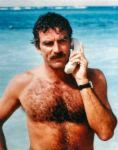
(This is my online persona-Bea Complexx, who I guess looks and acts much like a powder puff girl)
So what do I have in common with my 9th grade students? Well despite being way too old, I have a myspace account. I don’t really know how it started but I got sucked in and have wasted immense periods of time on it. Since I am familiar with the subject, I decided to do my mini-ethnography on social networking sites, specifically myspace. As I peruse the pages of my top 8 I notice several things. One, everyone has listed their favorite activities, music, movies and books. People are volunteering information about their (gasp) personal lives, such as aspirations and goals, hero’s and respected influences. Filling out this information isn’t required to have a myspace yet everyone complies and dutifully fills out the lists. I suppose leaving it blank would defeat the purpose of myspace, which is basically an online advertisement of one’s self. Hey pick me! I like the same stuff as you! Put me in your top 8! However, most of my friends aren’t really there to meet new people. I can’t think of any that “accept” friend requests from people they don’t somehow marginally know. My friends use it more to communicate with each other. I know with my brother and husband it is a constant competition of who can put the most ridiculous video on the other’s site. Another way my friends use myspace is to advertise activities they are involved in. My sister and her fiancé have a site for their kickball team, my friend’s band posts songs for people to play on their own myspace site and my friend Graham sends out bulletins when he has an art show. They use myspace not really to advertise themselves but their interests and projects. It seems pretty effective too.
More and more we are communicating in short and impersonal ways. Now if I want to tell someone something, I don’t have to “deal” with the actual communication part, I can leave a comment on their myspace. I don’t have to be inconvenienced with actual speaking, but can text on my phone and I don’t have to waste time with actual words, because I can just use letters (LOL, BRB). As an adult I don’t see too much harm coming from these sites. I’m too old for the perverts now and, as an adult, I would not be taken in by a sweet-talking, or should I say sweet-message leaving manipulator. However, I am concerned about my students. They have such a different concept of privacy. I recently set my profile to private because several students had “found” me and wanted to be my friend. There would be many things wrong with that idea. And even though this is contradictory, there are parts of my life that, despite putting it on the internet, I do not want my students to know.
